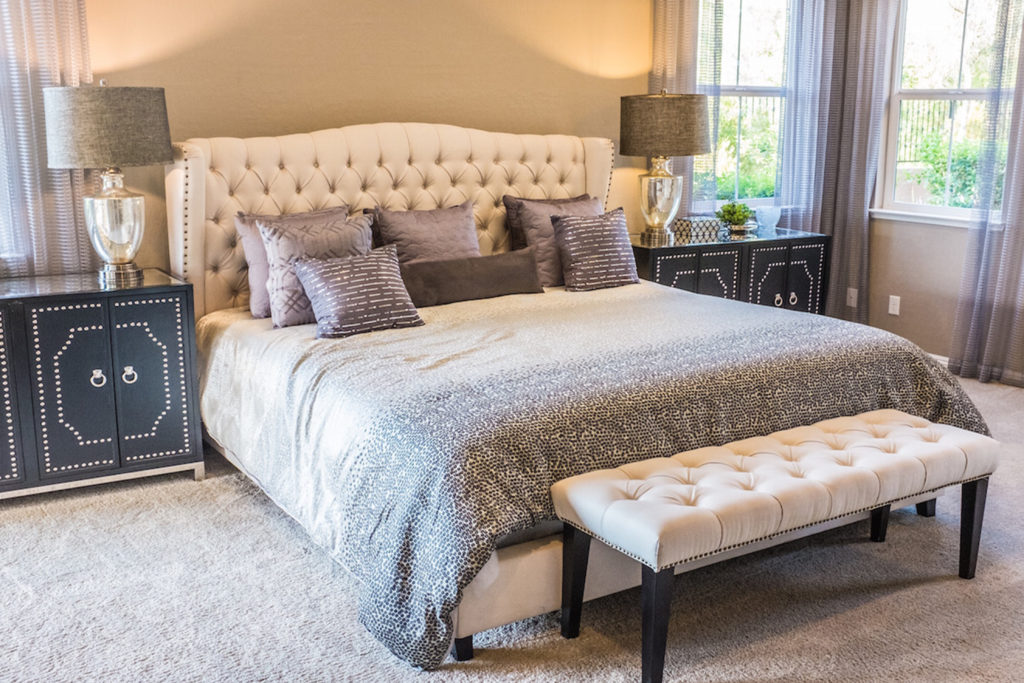Have you ever had such deep, sound, restful sleep that you woke before your alarm, feeling wonderful and ready to meet your day? The benefits of sleep go beyond just waking up refreshed. — it’s essential to all other parts of your health. We know that getting enough (between 7 – 9 hours) good quality sleep relieves stress, decreases inflammation, improves mood, and can help with weight loss and hormonal regulation. Let’s face it: if you’re tired, you tend to be more emotional, don’t make the best food choices, and don’t want to exercise.
Quality is more important than quantity! Here are some simple things you can do to improve your sleep that are free or very inexpensive.
Sleep in the dark, be awake in the light
We are light-sensitive animals. Our bodies’ cells and hormone systems all respond to light. Light exposure at the wrong time has been shown to interrupt our body’s natural circadian rhythms, particularly affecting melatonin production. Melatonin is a hormone associated with regulation of our sleep/wake cycles. Blue light — computers, phones, televisions, LEDs — specifically has been shown to decrease melatonin levels, which results in sleeplessness and is also associated with increased cancer risks, obesity, and heart disease. While blue light has been shown to be the worst, even normal levels of room lighting can have an adverse effect.
- Eliminate exposure to screens at least two hours before going to bed. Install the program f.lux on your computers or phones. f.lux adapts your screen to the time of day, making its lighting closer to softer interior lighting.
- Use blackout shades on your bedroom windows. If you can’t get blackout shades, try using a sleep mask instead.
- Cover up any LED lights in your room (from alarm clocks, computers, etc.). A quick and easy way is to cover them with black electrical tape. There is a product, LightDims, that can block the offending light while still letting you see the time.
- Expose yourself to natural light during the day. First thing in the morning, try to expose your eyes to natural bright light, and get outside a few times a day. Natural light has been shown to improve sleep/wake cycles, making you feel more energized during the day and sleepy at night.
- Keep your room cool. A cool room helps improve quality of sleep, so turn down the heat if possible.
Avoid stimulants
- Ditch the coffee. This should be a no-brainer, but often, when sleep is poor we begin to depend on stimulants to get us through the day. While giving up coffee can be tricky, it may be worth it. If that seems too hard, make sure to stop drinking any caffeinated drinks by 10am.
- No alcohol at night. Alcohol can definitely help you fall asleep, but tends to cause restlessness and waking during the night.
Follow the sun: sleep at night, be awake during the day
- Get to sleep before 11pm, and get up in the morning. Research has shown the body tends to increase cortisol production at 11pm. If you aren’t asleep, it will help you stay awake.
- Limit naps: try to limit napping to 20-30 minutes.
Other tricks you may find useful
- Limit exposure to EMFs. Some people find they are sensitive to the EMFs (electromagnetic frequencies) that radiate from our wi-fi and phones. An easy trick to eliminate this factor is to put your home wi-fi on a timer during the night, and if you keep your phone in your room, set it to airplane mode while you are sleeping.
- Honey + apple cider vinegar (we recommend the Braggs brand) in hot water. Many people swear by this as an aid to help induce sleepiness.
- Lavender oil. A little lavender essential oil on your pillow calms the mind, decreases stress levels, and can help get you into a good sleep.
If you are still struggling with poor sleep, consider coming in for acupuncture and herbal medicine. Good sleep is the foundation of good health. Making your sleep a priority can improve everything.
[written by Julie]
